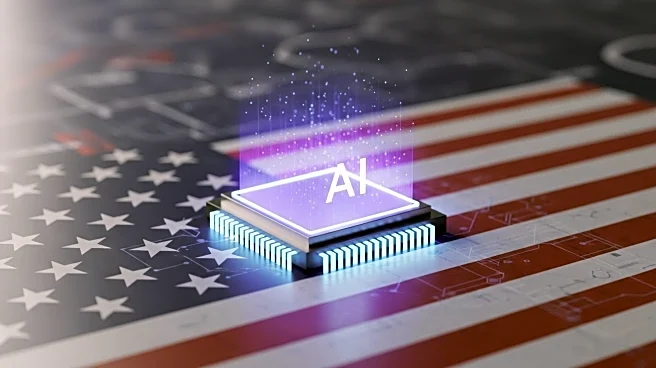What's Happening?
Senator Jim Banks has introduced the 'Guaranteeing Access and Innovation for National Artificial Intelligence' Act, aiming to prioritize American companies in the allocation of advanced AI chips. The bill proposes that exporters must offer U.S. buyers the right-of-first-refusal on chips with processing power of 4,800 teraFLOPS or above before selling to foreign entities. This legislative move follows the rescinding of the Biden administration's 'AI Diffusion Rule' and a subsequent arrangement allowing certain chip sales to China. Nvidia has opposed the bill, arguing it could hinder market expansion for American businesses.
Why It's Important?
The bill reflects a strategic shift in U.S. policy, treating computational capacity as critical infrastructure. It aims to ensure American companies have access to essential AI resources, potentially boosting national competitiveness in the AI sector. However, it risks diplomatic tensions with allies and could accelerate the development of alternative AI ecosystems outside U.S. influence. The legislation could also impact global semiconductor supply chains, affecting pricing and availability of high-end chips.
What's Next?
If passed, the bill could lead to significant changes in chip allocation processes, requiring exporters to certify domestic demand satisfaction before international sales. This may create compliance challenges for companies and alter global market dynamics. The legislation's impact on international relations and semiconductor industry practices will be closely monitored.
Beyond the Headlines
The bill highlights the growing importance of 'silicon sovereignty' in national competitiveness. It underscores the need for strategic resource management in the AI era, where access to computational power is increasingly linked to economic opportunity.












